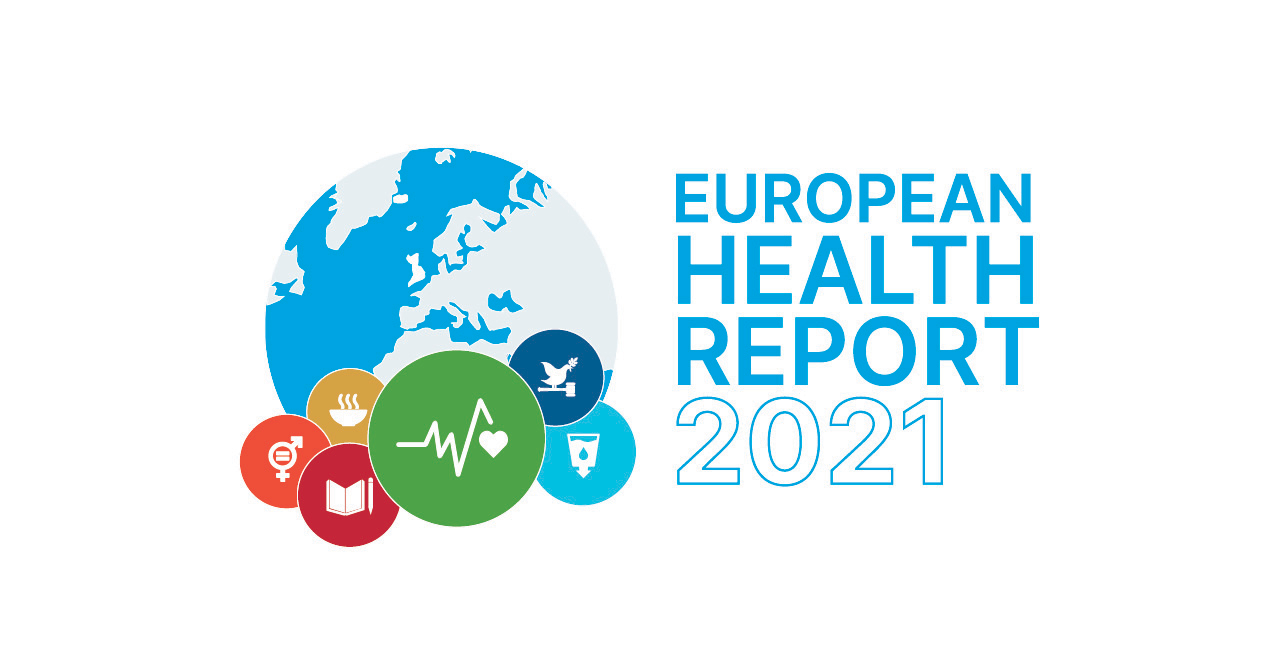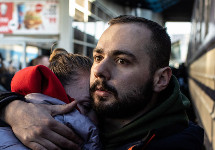To promote a disability-inclusive response to the refugee crisis in the Republic of Moldova, a WHO-led joint project funded by the United Nations Partnership on the Rights of Persons with Disabilities (UNPRPD) has been launched in Chisinau.
Called “Mainstreaming a disability-inclusive humanitarian response to the Ukrainian refugee crisis”, it aims to raise and address important concerns. The ongoing war in Ukraine has forced millions of Ukrainians out of their homes and into neighbouring countries, including the Republic of Moldova, disproportionally affecting those with disabilities. By July 2022, it was estimated that 13% of all families that had fled Ukraine included at least 1 member with a physical or psychosocial disability.
Since 24 February 2022, over 780 000 Ukrainians have crossed the border into the Republic of Moldova, according to the United Nations High Commissioner for Refugees (UNHCR), with more arriving every day. As of this month, March 2023, over 107 000 Ukrainian refugees remain in the Republic of Moldova, which serves as both a transit and a destination point. With hostilities ongoing and entire Ukrainian cities severely damaged or destroyed, many of these people are expected to stay in their host country for the foreseeable future.
The project aims to support international and local service providers in becoming more inclusive of Ukrainian refugees with disabilities. By reviewing coordination systems between central and regional institutions, United Nations organizations, and other humanitarian actors, the project partners hope to eventually benefit all people with disabilities residing in the Republic of Moldova, regardless of their national origin or legal status.
Promoting inclusion
A workshop in Chisinau gathered project partners from WHO/Europe and other United Nations agencies along with representatives of organizations of people with disabilities who shared their expertise and discussed inclusion issues. These included the lack of sign language interpreters in shelters and refugee centres, which makes these places inaccessible for people with hearing impairments or deafness.
Ukrainian children with autism spectrum disorder and other psychosocial differences continue to study online while dealing with complex traumas. The UNPRPD project aims to promote their access to communities, education and employment opportunities.
Other goals include improving services dealing with sexual and gender-based violence for refugee women and girls, strengthening the legislative framework, promoting access to social protection for children and adults with disabilities, and eradicating stigma and discrimination.
Initiatives and challenges
The Republic of Moldova's authorities and humanitarian entities have demonstrated leadership in responding to the needs of refugees fleeing the war in Ukraine. Representatives from the Ministry of Labour and Social Protection, the Disability Taskforce (under the UNHCR-led intersectoral working group), and the Bureau for Migration and Asylum have introduced multiple initiatives designed to help this population group, including simplified entry procedures, information hotlines, financial aid and temporary accommodation.
Requests from people with disabilities, many of whom need assistance reaching other places, are reviewed individually. Recently, specialized transportation to Poland was organized for a person with complex health needs, who could only be moved horizontally.
However, more than 1 year into the war, many challenges faced by Ukrainian refugees with disabilities remain unaddressed, primarily due to insufficient data on their location and needs, alongside other barriers. This is another gap that this partnership aims to close.
People with disabilities, just like all refugees, must navigate unfamiliar health systems while dealing with language barriers, financial hardship and post-traumatic stress. At the same time, access to medicines and specialized health care, assistive equipment, and social and rehabilitation services remain largely inaccessible to them due to lengthy bureaucratic processes and a lack of available information for those with different access needs, such as visual impairments or deafness.
Background
WHO is collaborating on the joint project with the UNHCR, the Office of the United Nations High Commissioner for Human Rights (OHCHR), the United Nations Children’s Fund (UNICEF), the United Nations Entity for Gender Equality and the Empowerment of Women (UN Women), and the United Nations Population Fund (UNFPA).
In addition, local and international organizations of people with disabilities are participating in the project, namely the European Disability Forum, the Alliance of Organizations for Persons with Disabilities from the Republic of Moldova, the Association “Motivatie” of Moldova, the Moldovan Association for Deaf People, and the Centre for the Rights of Persons with Disabilities.
The project supports the implementation of the “WHO European framework for action to achieve the highest attainable standard of health for persons with disabilities 2022–2030”. It will conclude on 31 October 2023.




